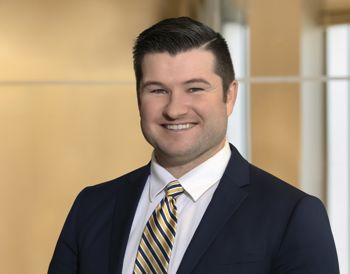Legal Guardianship & Conservatorship for Adults in Virginia
When a loved one is unable to make appropriate decisions for themselves due to age, illness, or disability, families are often left wondering how best to protect their loved one’s well-being, decision-making, and finances. Legal guardianships and conservatorships are legal tools that can provide the protection and support needed in these situations.
At Pender & Coward, we help families navigate the complex legal process of obtaining guardianship and/or conservatorship for incapacitated adults in Virginia, ensuring that vulnerable individuals are cared for with dignity and respect.
Guardianship is a legal arrangement in which the court appoints a person (the guardian) to make personal, health, care, safety, and rehabilitation decisions for an incapacitated adult. This may include decisions about medical treatment, living arrangements, and daily care. To establish guardianship, it must be proven that the individual lacks the capacity to meet the essential requirements for their health, care, safety, or therapeutic needs without the assistance or protection of a guardian.
Conservatorship is similar to guardianship but focuses on financial or estate matters. A conservator is appointed to manage the estate, income, and financial affairs of an individual who is no longer capable of doing so. Conservators are responsible for tasks such as paying bills, managing bank accounts, and protecting assets—always acting in the best interest of the incapacitated person.
Guardianship or conservatorship may be necessary under several circumstances, including:
- A loved one with dementia or Alzheimer’s is no longer able to care for themselves
- A mentally disabled adult child reaches age 18 (filing can usually occur when the soon-to-be disabled adult child turns 17 and 6 months)
- An individual is hospitalized or in long-term care and cannot manage their own affairs
- Financial exploitation or neglect of a vulnerable adult
- Early intervention can help prevent harm and ensure proper care and asset protection.
The Legal Guardianship & Conservatorship Process in Virginia
Establishing guardianship or conservatorship involves filing a petition with the Circuit Court in the jurisdiction where the incapacitated person resides or is located. The process includes:
Filing a Petition
– Typically filed by a family member, social worker, hospital, long-term care facility, or other interested party who is generally represented by counsel.Investigation by a Guardian ad Litem
– The court appoints an attorney to investigate and represent the interests of the incapacitated person.Evidence
– A confidential medical evaluation report completed by a physician, psychologist, or licensed professionals skilled in the assessment and treatment of the physical or mental conditions as alleged in the petition.Court Hearing
– A judge reviews the evidence, hears testimony, and decides whether to appoint a guardian and/or conservator, who may be a family member of the incapacitated person. The court hearing and appointment of the guardian and/or conservator generally takes place between 6-8 weeks after the filing of the petition, although the length of the process may vary from jurisdiction to jurisdiction and based on the contested or uncontested nature of the matter. All guardianship and conservatorship orders may be modified or terminated if circumstances warrant such effect.
Alternatives to Guardianship and Conservatorship in Virginia
While guardianship and conservatorship can provide vital protections, they are also significant legal interventions that remove a person’s ability to make decisions for themselves. In many cases, less restrictive alternatives may offer the necessary support without going through the court system or diminishing a person’s autonomy.
Here are some common alternatives that may be appropriate depending on the individual’s mental capacity and family circumstances:
Powers of Attorney (POA)
: A power of attorney allows an individual (the "principal") to designate someone they trust (the "agent") to manage financial or healthcare decisions on their behalf. A durable power of attorney remains in effect even if the principal becomes incapacitated, making it a proactive legal tool to potentially avoid the need for guardianship and conservatorship later.Advance Medical Directives
: Also known as living wills or healthcare proxies, these documents let a person express their wishes regarding medical care in advance and appoint a trusted person to make healthcare decisions if they are unable to do so. Advance directives can often eliminate the need for a court-appointed guardian for medical decision-making.Revocable or Irrevocable Trusts
: A trust allows assets to be managed by a trustee for the benefit of another person. With proper planning, a trust can ensure financial protection and management for an aging or disabled loved one without requiring a conservatorship. Trusts can be tailored to meet a wide range of needs, from basic asset management to long-term care planning.Supported Decision-Making Agreements
: In some cases, individuals with disabilities may be capable of making their own decisions with the help of a support network. A supported decision-making agreement allows the individual to retain legal decision-making authority while formally recognizing the role of advisors, family, or professionals in guiding those decisions.Representative Payee Services
: For individuals receiving government benefits (such as Social Security), a representative payee can be appointed to manage those funds without the need for conservatorship.
At Pender & Coward, our experienced attorneys can help you explore these less restrictive legal alternatives. We’ll carefully assess your loved one’s situation and recommend the most appropriate course of action to preserve their independence while ensuring their safety, dignity, and financial security.
Experienced Guardianship Attorneys Serving Virginia Families
Our attorneys have extensive experience helping families with efficient, affordable guardianship and conservatorship representation across Virginia.
Why Choose Pender & Coward?
We provide:
- Compassionate, client-focused service
- Skilled representation at every step of the process
- Guidance on legal, financial, and emotional aspects of protecting a loved one
We understand how overwhelming these decisions can be. Let us help you protect those who matter most.

